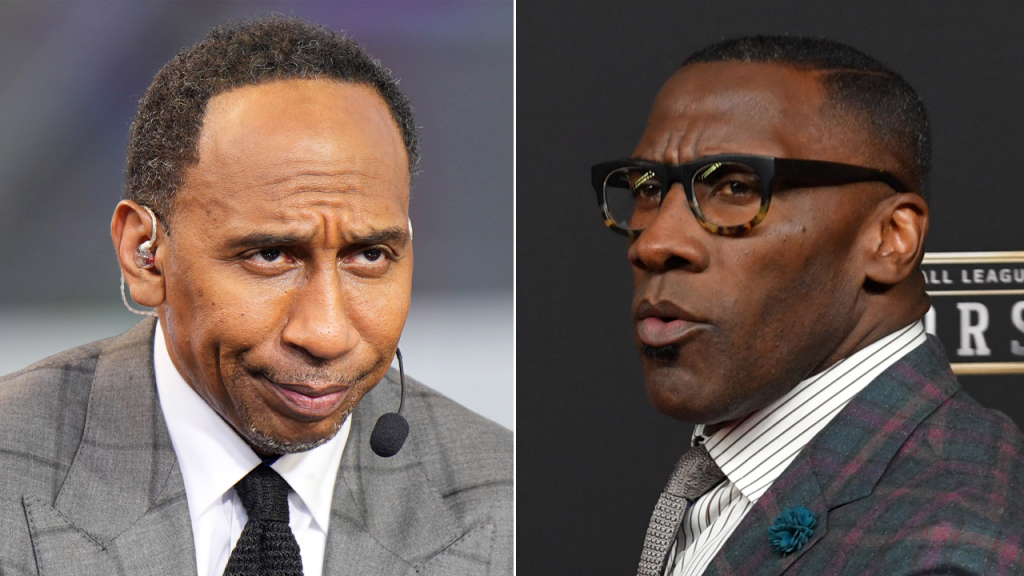The ESPN family drama unfolded on air when sports commentators Stephen A. Smith and Shannon Sharpe, co-hosts of the popular debate show “First Take,” publicly rebuked their colleagues, Kirk Herbstreit and Chris Fowler, for comments made during a College Football Playoff broadcast. The incident stemmed from Herbstreit and Fowler’s discussion of Ohio State Buckeyes head coach Ryan Day’s future following a series of losses, particularly to their rival, Michigan. Herbstreit referenced the “lunatic fringe” criticizing Day and then pointed fingers at “First Take,” suggesting the show had been calling for Day’s dismissal. This sparked a strong reaction from Smith and Sharpe, who felt Herbstreit misrepresented their stance and used their show as a scapegoat.
Smith meticulously addressed the perceived mischaracterization, emphasizing that he, as an individual, had expressed his opinion on Day’s performance and potential future, not the show as a whole. He clarified his earlier statement, asserting that he believed Day needed a national championship to secure his position, given his otherwise impressive record. Smith’s frustration stemmed from Herbstreit attributing a personal opinion to the entire “First Take” brand, potentially creating unnecessary friction within ESPN. He directly refuted the narrative that “First Take” collectively sought Day’s firing, emphasizing the distinction between his individual commentary and the show’s broader discussions.
Sharpe, known for his candid and often fiery pronouncements, delivered a more visceral response. While acknowledging his desire to maintain a professional demeanor within ESPN, he warned Herbstreit and Fowler against future mentions of “First Take” in a disparaging manner. Sharpe’s message was clear: he would not tolerate what he perceived as disrespectful and inaccurate portrayals of his show. His statement implied a deep loyalty to “First Take” and a willingness to defend its reputation, even against fellow ESPN employees. He essentially issued a cease-and-desist, emphasizing the severity of any further perceived slights.
The underlying tension in this exchange highlights the competitive nature of sports media and the potential for conflict even within the same network. Herbstreit and Fowler’s comments, whether intended as a casual remark or a more pointed critique, touched a nerve within the “First Take” camp. Smith and Sharpe’s reactions underscore their commitment to their show and their refusal to be used as convenient targets for criticism, even by their ESPN colleagues. The public nature of this disagreement reveals the complex dynamics within a large media organization, where personal opinions and professional rivalries can sometimes clash.
The incident also raises questions about the boundaries of commentary within a network and the responsibility of commentators to accurately represent the views of their colleagues. While Herbstreit and Fowler’s comments may have been intended as a lighthearted observation on the intensity surrounding college football, they inadvertently sparked a more serious debate about journalistic integrity and professional courtesy. The subsequent reactions from Smith and Sharpe suggest that the lines between casual banter and potentially damaging commentary can become blurred, particularly in the high-stakes world of sports media.
This episode ultimately serves as a reminder of the power of words in the media landscape. Casual remarks can be amplified and interpreted in various ways, potentially leading to unintended consequences. The “First Take” saga within ESPN emphasizes the importance of accuracy and respect in media discourse, particularly when discussing colleagues and their viewpoints. It underscores the delicate balance between expressing personal opinions and maintaining professional relationships, a balance crucial for navigating the complex landscape of sports media.

